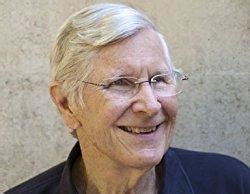A Quote by Pablo Picasso
A painting is not thought out in advance. While it is being done, it changes as one’s thoughts change. And when it’s finished, it goes on changing, according to the state of mind of whoever is looking at it
Related Quotes
Since you alone are responsible for your thoughts, only you can change them. You will want to change them when you realize that each thought creates according to its own nature. Remember that the law works at all times and that you are always demonstrating according to the kind of thoughts you habitually entertain. Therefore, start now to think only those thoughts that will bring you health and happiness.
The state of mind of the photographer creating is a blank. I might add that this condition exists only at special times, namely when looking for pictures. -Something keeps him from falling off curbs, down open manholes, into bumpers of skidding trucks while in this condition but goes off duty at other times. . . . This is a very special kind of blank. A very active state of mind really, it is a very receptive state. . .
While you're meditating, all kinds of thoughts arise... You don't find your thoughts threatening or particularly helpful. They just become the general gossip of your thoughts. This traffic of your thoughts and the verbosity of your mind are simply part of the basic chatter that goes on in the universe. Just let it go through.
When we speak of a calm state of mind or peace of mind, we shouldn't confuse that with an insensitive state of apathy. Having a calm or peaceful state of mind doesn't mean being spaced out or completely empty. Peace of mind or a calm state of mind is rooted in affection and compassion and is sensitive and responsive to others.
To plead the organic causation of a religious state of mind, then, in refutation of its claim to possess superior spiritual value, is quite illogical and arbitrary, unless one have already worked out in advance some psycho-physical theory connecting spiritual values in general with determinate sorts of physiological change. Otherwise none of our thoughts and feelings, not even our scientific doctrines, not even our dis -beliefs, could retain any value as revelations of the truth, for every one of them without exception flows from the state of their possessor's body at the time.
You have bits of canvas that are unpainted and you have these thick stretcher bars. So you see that a painting is an object; that it's not a window into something - you're not looking at a landscape, you're not looking at a portrait, but you're looking at a painting. It's basically: A painting is a painting is a painting. And it's what Frank Stella said famously: What you see is what you see.






































